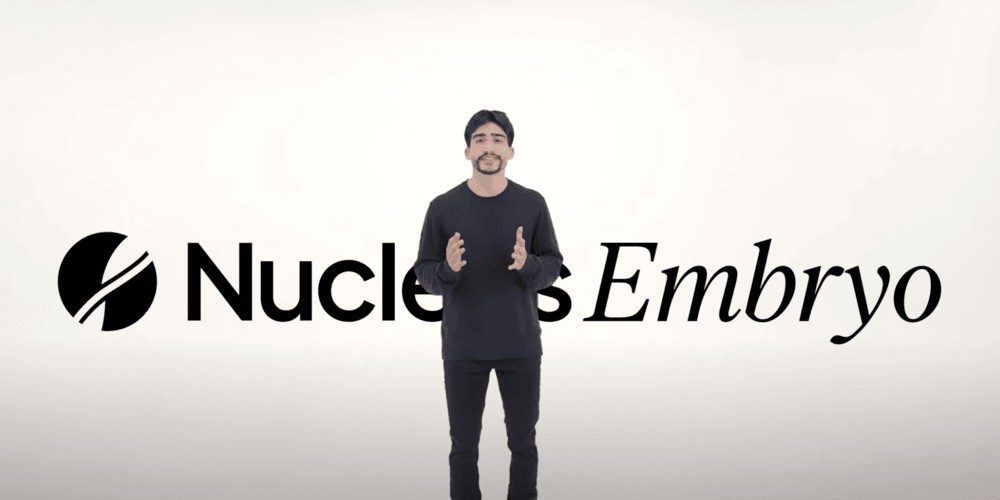Kian Sadeghi was 25 years old when he decided to monetise human evolution. His company, Nucleus Genomics, charges parents $5,999 to rank their IVF embryos across 900 different traits: everything from projected IQ and height to cancer risk and probable lifespan. The Wall Street Journal reported on it this week and the company has been trending on X as a result, with tech bros and longevity enthusiasts celebrating what some see as the next frontier in human optimisation.
The pitch is straightforward enough. Upload your embryos’ genetic data, and Nucleus will score each one like a used car listing. Want a tall child with low Alzheimer’s risk? That’s embryo number three. Prefer high IQ with good cardiovascular odds? Try number seven. As Sadeghi puts it, parents can now “select the future of your bloodline with a dashboard.”
This isn’t some distant sci-fi scenario. Nucleus has already analysed 120,000 embryos through its partnership with Genomic Prediction. The technology seems to work, the market exists, and Peter Thiel’s Founders Fund has written some of the cheques. While 23andMe collapses under the weight of its own data-privacy scandals, modest data output, and overall unprofitable business model, this next-generation genetic company is selling something far more consequential than ancestry reports and basic medical information.
Sadeghi speaks fluently in Silicon Valley’s language of disruption and optimisation. At longevity conferences, he frames embryo selection as “debugging genetic code” and “taking medicine back and putting it in people’s hands”. This rhetoric transforms profound ethical questions into technical problems, as if selecting human traits were no different from choosing iPhone features.
What strikes me about Sadeghi’s venture isn’t the technology itself, given that embryo screening for Down syndrome and Tay-Sachs has been standard practice for years (albeit controversial in some circles). It’s the brazen expansion into polygenic traits like intelligence and longevity, coupled with Silicon Valley’s trademark certainty that disrupting natural selection is just another optimisation problem. The company provides “probability assessments” for IQ, though they admit these predictions have limited accuracy.
Limited or not, some rich family will buy it anyway. After all, if you could reduce your child’s cancer risk by 20%, why wouldn’t you? If one embryo projects to live five years longer than another, what kind of parent would choose the shorter-lived option? Each individual decision makes perfect sense. Yet collectively, we’re engineering something unprecedented: a society where genetic advantages could compound across generations like interest in a trust fund.
Unlike previous aristocracies based on land or titles, genetic advantages can’t be redistributed through revolution or reform. The Romanovs’ haemophilia and the Habsburgs’ innumerable ailments reminds us that even royal bloodlines were subject to genetic bad luck. But when intelligence, health and longevity become purchasable commodities, class mobility shifts from difficult to biologically impossible. Two generations from now, the children of parents who could afford comprehensive embryo selection might form a literally different breed of human — systematically taller, smarter, healthier and longer-lived than the rest.
There’s a deeper irony here that the longevity crowd seems to miss. Natural genetic diversity is a feature, not a bug. Random variation serves as insurance against unforeseen challenges, whether new diseases, environmental changes or other selective pressures we haven’t imagined. When wealthy families all select for similar “optimal” traits, they’re creating genetic monocultures. We’ve seen what happens to specialised dog breeds. There, the very traits that win pageants often create health vulnerabilities.
Besides, Darwinian survival isn’t about living longest. It’s about producing the most offspring who themselves reproduce successfully. The couple who uses Nucleus to select their perfect embryo might get three genetically optimised children from multiple rounds of IVF, although it bears noting that this is an invasive procedure requiring significant egg harvesting. Meanwhile, their less affluent neighbours might have five kids the old-fashioned way. Which family wins the evolutionary game?
The regulatory landscape here in the US is essentially non-existent. While the EU has wisely set strict limits on genetic selection in its Charter of Fundamental Rights, America treats embryo ranking like any other consumer choice.
Unless this proves to be another startup failure like 23andMe and Theranos, it could represent the quiet birth of humanity’s first permanent caste system, where class lines get encoded directly into DNA. The train is already leaving the station, and it only goes in one direction. Those who can afford a ticket will board. The rest, unable to avail themselves of the sort of “Intelligent Design” previously reserved to an omnipotent creator, will watch their children fall further behind with each passing generation.











Join the discussion
Join like minded readers that support our journalism by becoming a paid subscriber
To join the discussion in the comments, become a paid subscriber.
Join like minded readers that support our journalism, read unlimited articles and enjoy other subscriber-only benefits.
Subscribe